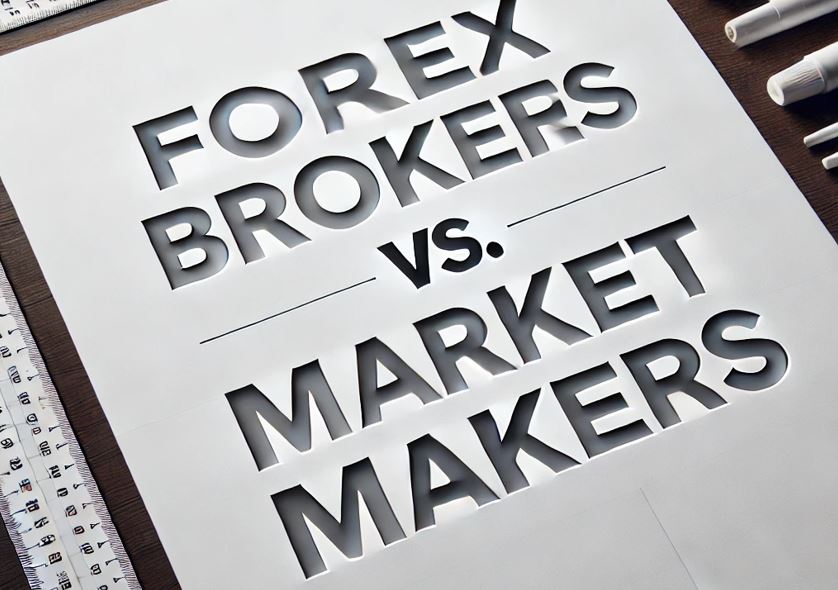When diving into the world of foreign exchange trading (Forex), you’ll inevitably encounter two key terms: Forex brokers and market makers. While they both play a crucial role in facilitating Forex trading, they operate in distinct ways. Understanding the differences between these two entities is essential for any trader looking to navigate the Forex market successfully.

Forex Brokers: Your Gateway to the Market
A Forex broker serves as your intermediary, providing access to the global Forex market. They act as a bridge between you and the underlying financial institutions that execute trades. Think of them as your personal guide, helping you navigate the complex landscape of currency pairs.
Key functions of a Forex broker:
- Account opening: They create trading accounts, allowing you to deposit funds and start trading.
- Platform access: Brokers provide trading platforms, equipped with tools and features to analyze the market and execute orders.
- Order execution: When you place a trade, your broker transmits the order to a liquidity provider, typically a market maker.
- Margin trading: Many brokers offer leverage, allowing you to trade with more capital than you’ve deposited.
- Customer support: They provide assistance with account management, technical issues, and trading strategies.
Types of Forex brokers:
- Dealing desk brokers: These brokers execute trades against their own capital, potentially introducing conflicts of interest.
- Non-dealing desk brokers: Also known as ECN (Electronic Communication Network) brokers, they route your orders to multiple liquidity providers, ensuring better pricing and execution.
Market Makers: The Backbone of the Forex Market
Market makers are financial institutions, such as banks, investment firms, and hedge funds, that provide liquidity to the Forex market. They constantly quote bid and ask prices for various currency pairs, ready to buy or sell at these prices. Essentially, they create the market by ensuring there’s always a buyer and a seller.
Key functions of market makers:
- Liquidity provision: They maintain a continuous supply of buy and sell orders, ensuring the market remains liquid and efficient.
- Price discovery: Market makers play a significant role in determining the fair market value of currency pairs.
- Risk management: They use sophisticated risk management strategies to protect themselves from adverse market movements.
The Relationship Between Brokers and Market Makers
Forex brokers and market makers work together to facilitate trading. When you place an order through your broker, they route it to a market maker who is willing to execute the trade at the current bid or ask price. The market maker then fulfills the order, taking the opposite side of the trade.
Key factors influencing the relationship:
- Broker-market maker relationships: Brokers often have relationships with multiple market makers, allowing them to negotiate better pricing and execution for their clients.
- Technology: Advanced technology enables brokers to connect directly to market makers, reducing latency and improving order execution.
- Regulation: Regulatory oversight ensures that both brokers and market makers adhere to specific standards and practices.

Choosing the Right Forex Broker
When choosing a Forex broker, it’s important to take the following factors into account:
- Regulation: Verify that the broker is authorized and overseen by a credible financial regulatory body.
- Trading platform: Evaluate the platform’s user-friendliness, features, and performance.
- Fees and commissions: Compare the broker’s fees, including spreads, commissions, and overnight financing charges.
- Customer support: Assess the quality and responsiveness of their customer service.
- Market Access: Evaluate the broker’s ability to provide access to various currency pairs and trading instruments.
Conclusion
Both Forex brokers and market makers play crucial roles in the functioning of the Forex market. Brokers provide individuals and institutions with access to the market, while market makers ensure liquidity and price discovery. By understanding the roles and interactions between these two entities, traders can make informed decisions and navigate the Forex market more effectively.


